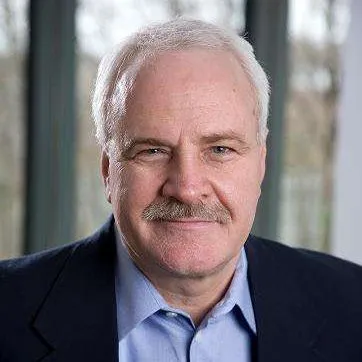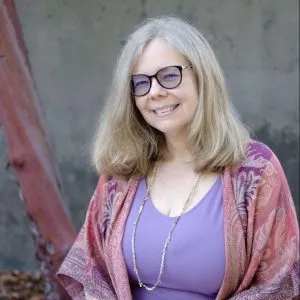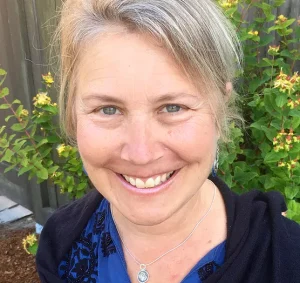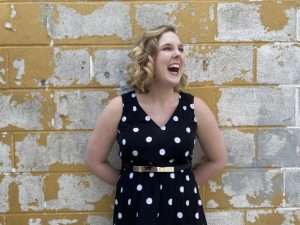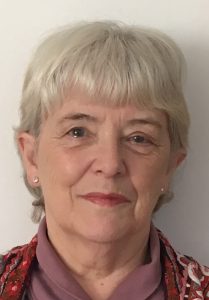Editorial Note:
This profile of Anthony F. Buono, PhD is brought to you through a joint collaboration between Applied Worldwide and the Association for Applied and Clinical Sociology (AACS). Thank you to AACS and all those who made valuable contributions to the Profiles in Applied & Clinical Sociology series.
This profile is presented with the intentions of: 1) providing students with examples of applied sociology, 2) providing market value to sociological skills and services, and 3) promoting the work of individual sociological practitioners and organizations. You can learn more about AACS at AACSnet.net.
Anthony F. Buono, PhD
Anthony F. Buono earned his B.A. in Business Management and Administration in 1975 from the University of Maryland. He continued his education to earn both an M.A. and Ph.D. in Sociology from Boston College, wrapping up his graduate education in 1981. The focus of his master’s and doctoral degrees was industrial and organizational sociology, allowing him to continue to hone his business education as he transitioned into his career as a sociologist.
As an applied and clinical sociologist, Dr. Buono focuses on “better understanding the various forces and dynamics that take place in business and managerial contexts. Over the years, the main thrust of [his] research and practice has evolved, focusing on organizational change on a number of levels: from (1) attempts to enhance individual experiences in the workplace, to (2) the individual, group, and organizational realities of the post-merger and acquisition process and the challenge of sustaining strategic alliances, to (3) broader questions about the nature of change and our attempts to manage that change and (4) their consulting-related ramifications, to (5) questions of stakeholder engagement and the challenges associated with the movement toward responsible management practice and education. [He] was also recently profiled in the Palgrave Handbook of Organizational Change Thinkers: Anthony F. Buono: A Practical Sociologist for a Changing World:”
When we asked Dr. Buono what types of services he offers as an applied and clinical sociologist he told us:
“The main thrust of my consulting services has been on managing organizational change, with a primary focus on post-merger and acquisition integration and inter-organizational strategies. While I have worked with non-profit organizations, most of my clients have been in the business world.”
Anthony F. Buono, PhD
Read the full interview with Dr. Buono below to learn more about his career as an applied and clinical sociologist working in the business world!
Using Sociology in Practice
How did you establish yourself as an applied or clinical sociologist?
I’ve always had an applied orientation and as an undergraduate I majored in business. I took an Industrial and Organizational Sociology course as an elective and found it fascinating—to the point where I never looked at business in the same way. That course triggered my interest in sociology as a way to develop a much broader appreciation of the forces that influenced managerial decision making and organizational behavior.
Early in my career, I became captivated with the dynamics that accompanied organizational change, literally falling into a longitudinal study of a friendly merger. The deeper I got into the merger process and its aftermath, it struck me that the human experience was much more like a Shakespearean play than a carefully calculated strategic plan. That one study led to other opportunities to research and write about the challenges of merger integration, which ultimately led to consulting opportunities.
I’ve always described myself as an accidental consultant. Following the publication of my book The Human Side of Mergers and Acquisitions (Jossey-Bass, 1989) and exposure due largely to favorable reviews by two syndicated columnists, I entered the speaking circuit for various professional associations where I had the opportunity to interact with a range of C-suite executives. Conversations led to consulting engagements, which were not really planned. The executives who approached me were looking for assistance in dealing with the types of situations covered in our research. I realized that what I had been doing as an ethnographer could provide useful insight to these individuals.
In general, how do you use sociology in practice?
Sociology provides a useful lens to look at the world. Throughout my career, I have been guided by the notion that people have agency, that once they develop a fuller understanding of the various forces that surround them, they are in the best position to make reasonable choices about moving forward. Drawing on sociological insights, one of my goals is to provide clients with what have been referred to as “sensitizing concepts,” in essence observations that provide a way of better understanding the dynamics they are experiencing, dynamics that are often hidden from initial observation.
In this sense, there is a strong parallel between sociology and management consulting, that as a first step it is necessary to understand the other’s (client’s) position, the challenges and problems they are facing in the context of their larger environment. While it is clear that such understanding rarely, if ever, leads to straightforward advice or action, it is useful in helping clients transition from insight to practice.
How do you use sociological research methods in practice?
My background and training in ethnography have been the essence of my work. I have tried to immerse myself in the organizations I study, often in the role of participant observer, using my consulting experiences as field work in my writing. I attempt to be as non-judgmental as possible, trying to understand people’s challenges and behavior on their terms, trying to better understand what they are experiencing. I then attempt to frame those experiences in ways that add value to their insights. In this sense, Max Weber’s ideal type analysis has been a useful methodological tool in my work, using it for classification and comparison across different situations.
How do you use sociological theory in practice?
Much of my work is built on Merton’s notion of middle-range theories, integrating theory with empirical research.
Lessons for Future Practitioners
What types of courses should undergraduate students take in preparation for a career in your type of practice?
A multidisciplinary mix of sociology and management/business courses, using the former to frame the latter. As an undergraduate, I began to realize that the business courses I was taking provided technical expertise in the different functional areas (accounting, finance, marketing, operations, human resources) but presented a relatively myopic view of that business world. Sociology courses – from introductory to applied workplace studies-type courses – provided a more complete picture of the realities of business and the challenge of management.
What types of courses should graduate students take in preparation for a career in your type of practice?
On one level, it is similar to the undergraduate experience. Combining an MBA with a master’s or doctorate in sociology provides a solid foundation. In addition to foundational courses in sociological theory and methodology, courses with a focus on industrial and organizational sociology and workplace studies are critical. A focus on what I would categorize as macro-organizational theory and behavior.
What types of experiences should undergraduate students seek in preparation for a career in your type of practice?
Blend the classroom with real world experience, getting engaged in the larger community. One of the best ways for undergraduates to do this is through service-learning. Service-learning and civic engagement provides students with the opportunity to move from theory to application, from learning about sociology (or management) in the relatively safe confines of the classroom to actually learning from the application of those classroom concepts to their direct experience. Based on my experience, students emerge from their service-learning experiences with a greater awareness of the world around them, and the role that they can play in helping to ameliorate many of the problems and challenges faced by their surrounding communities.
What types of experiences should graduate students seek in preparation for a career in your type of practice?
At the graduate level, many programs have consulting practicums that provide the type of experience and application that enhance practice and intervention. As an example, one of my recent volumes – Intervention Research: From Conceptualization to Publication (Information Age Publishing, 2018) discusses this process in detail, illustrating the interrelationships between practice (application) and scholarship (theory), using the former to inform the latter – in essence to better understand theory in practice and practice in its larger context.
What texts or authors can people reference to learn more about the work you do as an applied or clinical sociologist?
One of the strongest influences on my approach as a sociologist was Everett Hughes, a direct link to Robert Park and the Chicago School (Everett was one of Park’s students). I was very fortunate to be one of Everett’s last students. His classic book, Men and their Work provides a compelling look at how work shapes peoples’ lives, their social identity, and general social being. As Hughes argued, once you clearly see something happening you can be assured that it is likely to happen again and again. As an example, my work on post-merger and acquisition (M&A) dynamics indicates that although individual M&As are idiosyncratic events, there are basic patterns that shape M&A dynamics at the individual and organizational levels—and they do happen again and again.
Amati Etzioni, especially his classic works The Moral Dimension (1988) and The New Normal (2015), which frame the tension between one’s self-interest and the larger common good. These works provide a sociological perspective on the corporate social responsibility movement.
In terms of developing a broad appreciation of the field, the early work surrounding the human relations school (for example, Roethlisberger & Dickson, Management and the Worker [1939]) is very useful.
More generally, what are the best outlets to learn more about the work you do as an applied or clinical sociologist?
My textbook, A Primer on Organizational Behavior (Wiley) provides a good overview of applied social science in a managerial and organizational context, blending organizational psychology with sociology to better understand individual, interpersonal, group, organizational, and inter-organizational dynamics. Organizational theory textbooks also provide useful examples and illustrations of the influence that sociology has had on conceptualizing organizations and organizational life.
How would you describe the daily life of an applied or clinical sociologist?
As an academic, I don’t see my daily life as all that much different from many of my colleagues, a mix of classroom preparation and action, time in the field for research, and being in my home office at a computer capturing my experiences and thoughts, intertwined with committee meetings and assignments and client engagement. Perhaps the biggest difference is the time spent in business organizations, working with clients and helping them process action-oriented approaches to the issues they are facing.
What advice do you have for aspiring applied and clinical sociologists?
Focus on your passion, what you find the most interesting and how that relates to the challenges around us. When I decided to pursue a master’s and then doctorate in Sociology, many of my family and friends thought I was pursuing a dead-end career. It was one of my better decisions, and I have literally never looked back and thoroughly enjoyed my career.

